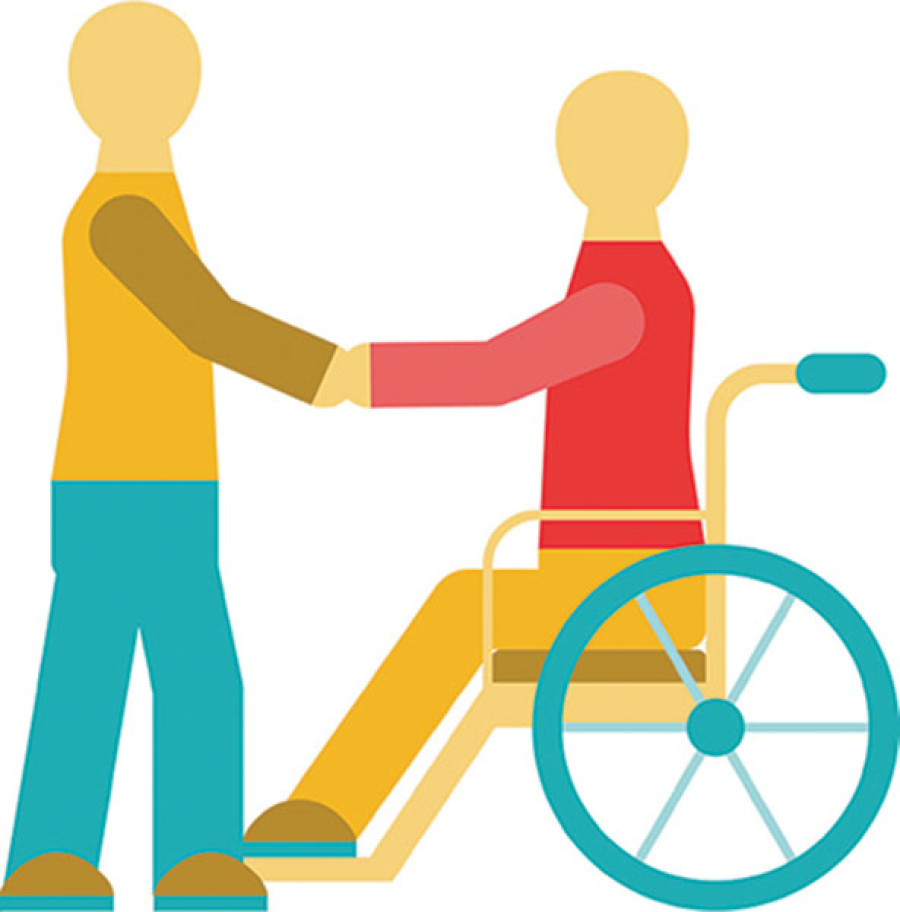Opinion
A new beginning
Inclusion of differently-abled people will renew the national dialogue on development narrative
Rurik Marsden & Tomoo Hozumi
On July 2, the Government of Nepal, in partnership with organisations of differently-able people, The United Nations Children’s Fund (UNICEF) and the Government of the United Kingdom, will be holding a conference to consider how to ensure differently-abled people in Nepal can reach their full potential and support the development of their country.
Titled “Disability in Nepal: Working together for an inclusive society”, the conference will bring together the government, organisations of people with disabilities, other civil society organisations, private sector entities, development partners and other relevant actors. It is expected to serve as a beginning of a renewed national dialogue on how to advance the inclusion of differently-abled people into the mainstream of development in Nepal.
Break the barriers
This conference will not stand alone. It is a part of a global wave of action, culminating on 24 July in London, when the Government of the United Kingdom together with the International Disability Alliance (IDA) and the Government of Kenya, host the first ever Global Disability Summit. Launching the summit back in November, Penny Mordaunt, the UK’s Secretary of State for International Development said: “We need to break down the barriers that persons with disability face in their everyday lives. Differently-able people must have the opportunity to fulfil their true potential and to help their countries prosper.”
Discrimination against differently-abled people, like every form of discrimination, holds back individuals, but it also holds back a country’s development. The London Disability Summit is based around the vision that differently-able people are consistently included in, and benefit from the opportunities that are available to everyone in society. It is expected to raise global attention and focus on disability; mobilising new global and national commitments to disability; and showcasing the best practice and evidence from across the world.
Investing in tackling disability is both the right thing and a sensible and responsible thing to do. There has been significant global progress in the promotion of human rights of different-able people over the last decade. The Convention on the Rights of People with Disabilities (CRPD), 2006 explicitly identifies differently-abled people as “subjects”: active members of society who can claim their rights and make decisions based on free and informed consent.
The 2015 Constitution of Nepal i also clearly states that, “There shall be no discrimination in the application of general laws on the grounds of origin, religion, race, caste, tribe, sex, physical conditions, disability, health condition, matrimonial status, pregnancy, economic condition, language or geographical region, or ideology or any other such grounds.” The Disability Rights Act of 2017 also has made a substantial departure from the welfare-based approach to the rights-based approach to disability. The Act fully recognises the principles on which the CPRD was founded and widened the definition of differently-abled people in line with that.
Agents of change
In line with the principle of “nothing about us without us”, the July 2 Nepal conference will help amplify the voice and participation of differently-abled people. They are agents of change themselves. They can significantly contribute to the development of Nepal. We have seen many examples of that in Nepal through the work of members of the National Federation of Disabled Nepal (NFDN) and other civil society organisations.
The Conference is an opportunity to reflect on the commitments that Nepal wants to make at the Global Summit in London. On one hand, improving the data on disability in Nepal is an urgent priority. In many countries, the official data show that only about 3 percent of people have disability, but when a survey is conducted by using the latest international standard tools developed by a group of experts (so-called “Washington Group on Disability Statistics”), the figure typically jumps up to 11 to 15 per cent. On the other hand, there are also important opportunities to act upon. As Nepal puts in place new legislation to implement the 2015 Constitution we hope that government’s across the country will build in the commitment to tackling disability established in the CRPD and in Nepal’s Constitution. This includes addressing hard infrastructure: for example ensuring that all public buildings are fully accessible to differently-able people. But also “soft” policy issues: for example ensuring that job creation programmes provide equal opportunities for differently-abled people.
In summary, tackling the impact of disability on development is not about charity. It is about ensuring that all differently-abled people have access to their rights and are empowered and supported to reach their potential claiming their full and fair stake in their nation’s future—whether that means access to healthcare, a good education, a decent job, freedom from fear and violence, or the ability to work together, perhaps through civil society organisations, to help shape government policy to reflect the perspectives of differently-able people. We look forward to continuing to support Nepal in advancing this important agenda.
Marsden is head of the United Kingdom’s Department for International Development (DFID) in Nepal. Hozumi is UNICEF Representative to Nepal




 14.24°C Kathmandu
14.24°C Kathmandu












